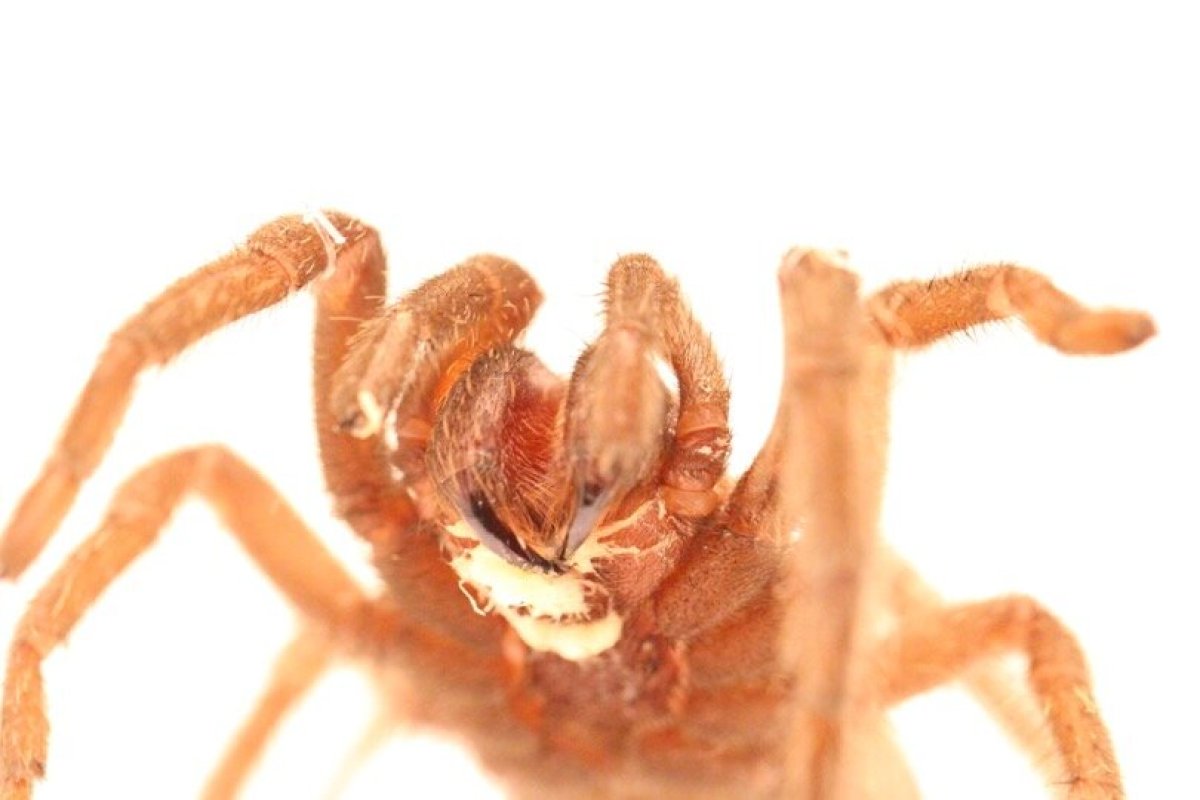Scientists in California have discovered a new species of worm capable of turning tarantulas into living 'zombies' and eating them from the inside out.
A team of scientists from the University of California, Riverside (UCR) was behind the new discovery the university announced Wednesday.
The research uncovered bizarre impacts that the worms have on their spider hosts prior to killing them, with strange tiptoeing behavior one of the documented side effects.
They decided to name the spider-eating worm after the Hollywood star Jeff Daniels, famous for his roles in Dumb and Dumber, 101 Dalmatians and The Martian.
Daniels also starred in the 1990 film Arachnophobia, where he helps protect a town from a spider infestation, a role seemingly behind the decision to officially name the new species Tarantobelus jeffdanielsi.
"His character in the film is a spider killer, which is exactly what these nematodes are," said UC Riverside parasitologist Adler Dillman, who led a team that discovered the nematode, in a press release.
The worm is a member of the nematodes family of worms, of which there are some 25,000 recorded species.
"I work with several other groups of parasitic nematodes and what surprised me most about Tarantobelus jeffdanielsi is that it doesn't seem to be anywhere inside of the tarantula except the oral cavity and sternum, just outside the oral cavity," Dillman told Newsweek.
"None, however, apart from this new species, are known to infect tarantulas in the way that Tarantobelus jeffdanielsi evidently can."
Daniels himself has since been made aware of the honor.
Speaking about his name's new frontier in the academia of biology, Daniel told UCR:
"When I first heard a new species of nematode had been named after me, I thought, 'Why? Is there a resemblance?' Honestly, I was honored by their homage to me and Arachnophobia. Made me smile. And of course, in Hollywood, you haven't really made it until you've been recognized by those in the field of parasitology."
The UCR team's work on the new, tarantula-eating worms was published in the Journal of Parasitology recently and detailed some remarkable findings.
Their research examining what happens to tarantulas infected with the worms uncovered details of how the nematodes kill the big spiders gradually after infestation, causing them to exhibit strange behavior such as standing on tiptoes and refusing to eat.
"We don't know how T. jeffdanielsi causes these behavioral changes in the tarantulas. We notice that the tarantulas display itching behavior when exposed to the nematodes," Dillman told Newsweek.
"They begin grooming like they don't want to have the nematodes on their body. It is likely that T. jeffdanielsi is associated with bacteria, and the bacteria may be involved in the behavioral changes and the paralysis of the chelicerae that we observe. Certainly more research is needed."
Also shrouded in mystery is how the worms can alter tarantula behavior in this way, paving the way for more research.
"Nematodes have been around for hundreds of millions of years. They've evolved to infect every kind of host on the planet including humans," Dillman said. "Any animal you know of on planet Earth, there's a nematode that can infect it."
This article has been updated to include additional quotes from Adler Dillman.

Uncommon Knowledge
Newsweek is committed to challenging conventional wisdom and finding connections in the search for common ground.
Newsweek is committed to challenging conventional wisdom and finding connections in the search for common ground.
About the writer
To read how Newsweek uses AI as a newsroom tool, Click here.








